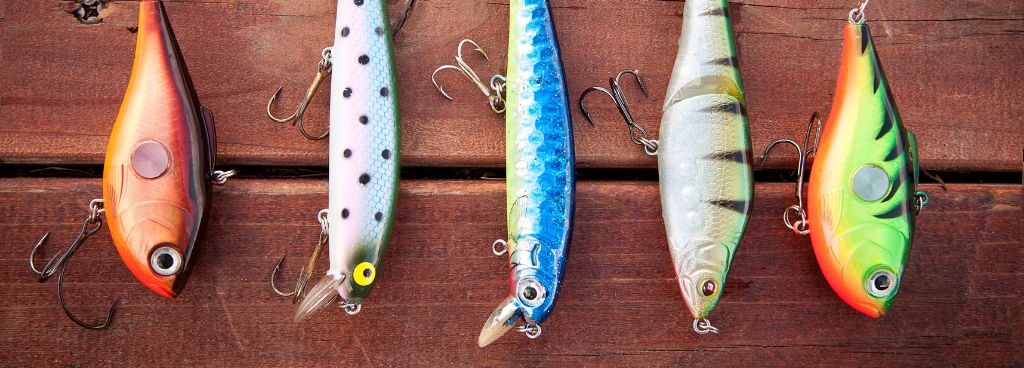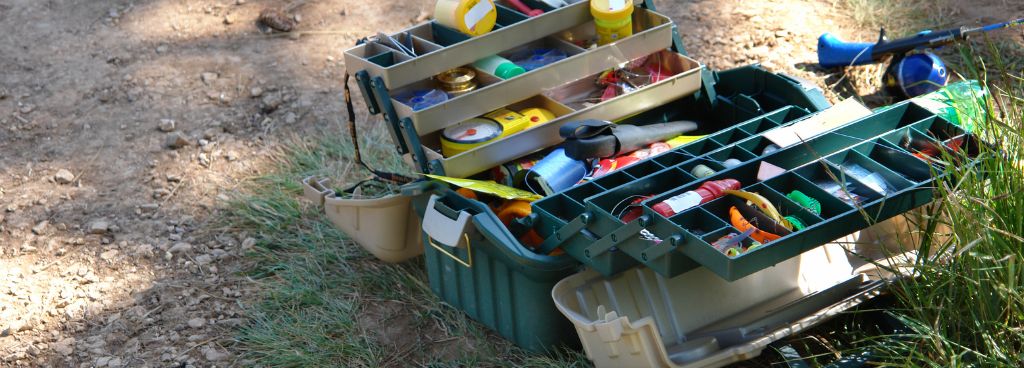Stories Worth Reeling In...
Last Updated on September 29, 2023
Are you concerned about the possibility of your fishing tackle rusting and losing its performance over time? The longevity and performance of your fishing equipment depend greatly on how well you protect it from rust.
In this comprehensive guide, we will explore the causes of fishing tackle rust and provide valuable insights on how to prevent it, ensuring the longevity and effectiveness of your gear.
Table of Contents
Fishing tackle rust can be caused by several factors, with moisture being a primary culprit. When fishing equipment is exposed to water, whether from freshwater or saltwater environments, it can lead to rust formation.
Improper storage conditions, such as leaving gear damp or storing it in a humid environment, can accelerate the rusting process.
Different types of fishing tackle are more susceptible to rust than others. Hooks, especially those made of carbon steel, are prone to rusting due to their direct contact with water and fish.
Reels, particularly the metal components like the spool and handle, can also be vulnerable to rust if not properly maintained. Metal lures, such as spoons or jigs, are another type of tackle that can develop rust if exposed to moisture over time.
To prevent tackle rust, it’s crucial to adopt proper cleaning, drying, and storage practices:
After each fishing trip, make sure to rinse your tackle together with your fishing rod, especially if it has been exposed to saltwater. Use fresh water to remove any salt residue that can contribute to rust formation.
After rinsing, thoroughly dry your tackle with a soft cloth to eliminate moisture and prevent rust from developing. Pay particular attention to crevices and hard-to-reach areas where water can accumulate.
When you apply vinegar to rust, it dissolves the oxide and leaves behind a water-soluble salt that you may readily remove. This reaction occurs between rust and acetic acid, which is why washing vinegar helps eliminate iron oxides from domestic surfaces and objects.
When selecting fishing tackle, opt for corrosion-resistant materials. Stainless steel hooks, for example, are less prone to rust compared to carbon steel ones.
Similarly, choosing reels with corrosion-resistant coatings or materials, such as graphite or aluminum, can help prevent rust formation.
Consider using tackle storage solutions that provide adequate protection against moisture and humidity. Tackle boxes or bags with built-in moisture-absorbing compartments or using silica gel packets can help keep your gear dry and rust-free.

In addition to regular cleaning and maintenance, there are additional measures you can take to protect your fishing tackle from rust and corrosion:
The benefits of investing in tackle boxes or bags with rust-resistant features include:
When it comes to reliable products and accessories for tackle protection, consider the following:

Rust is more common in saltwater fishing gear due to the corrosive nature of saltwater. However, freshwater gear can still rust if not maintained properly, especially if exposed to moisture for extended periods.
Yes, some tackle boxes are designed with rust-resistant materials or coatings to protect your fishing tackle. Look for options specifically labeled as rust-resistant.
Some fishing tackle is made from rust-resistant materials like stainless steel or aluminum. These materials are less prone to rusting, making them a good choice for saltwater fishing.
Yes, applying a thin layer of reel oil or lubricant can help prevent rust on your fishing reels. Be sure to follow the manufacturer’s recommendations for maintenance.
Remember, protecting your fishing tackle from rust is not just about maintaining the equipment; it also ensures that you are prepared for successful and enjoyable fishing trips.
Take the necessary steps to prevent rust formation, invest in high-quality storage solutions, and stay vigilant in your maintenance routines. By doing so, you can safeguard your tackle, prolong its lifespan, and make the most of your time on the water.